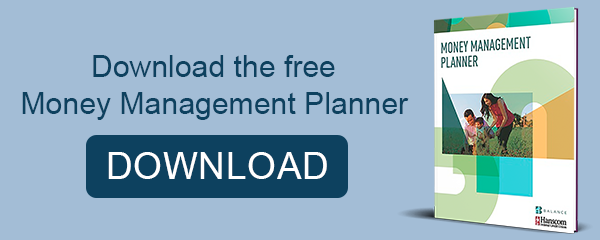Could you immediately put your hands on last year’s tax return, the past quarter’s tax bill, or a receipt for your most recent mortgage payment?
If the answer is no, don’t be embarrassed. It’s easy to become disorganized.
Remember that old saying, "A place for everything and everything in its place?" It applies to your finances as well.
Life moves quickly and things — sometimes important things such as payment notifications — can fall through the cracks and into the cushions of the sofa. A recent survey conducted by the Harris Poll on behalf of the National Foundation for Credit Counseling and Discover Financial Services reported that 25% of the 2,004 adults responding said they don't pay their bills on time. Late payments can occur for many reasons, but a big reason is not having a system for keeping financial information organized.
Keeping your finances organized can boost your credit score, your cash flow, and your peace of mind.
Here are six steps to keeping your financial information organized:
- Keep your financial records in one place. This may be the most crucial approach to staying organized. Consider purchasing a fireproof cabinet or safe. Having one location for all your financial paperwork, rather than a drawer here, a shoebox there, and a pile on the counter immediately brings organization to your system. Label your information clearly so that it can be located quickly. When a file label reads “Federal Income Tax 2019," you'll know exactly what's inside that folder. The exception is to consider putting things like savings bonds, automobile titles, deeds, and stock and bond certificates in a bank safety deposit box.
- Make it fun and easy to stay organized. If you're visually oriented, sometimes all it takes is a pile of fresh decorative folders, a label maker, or a stylish bill sorter from a discount store to keep you motivated to stay organized. Think about color-coding your system: for example, you could keep bills in red folders, tax records in blue, and medical records in yellow. You could also get away from using file folders and put papers in binders. This can be a good strategy if you tend to file and forget; a binder on a shelf is more visible than a folder in a drawer. Another thing that knocks people off track is having to look around for organizing tools when they need them. Keep these objects all in one place so you don't have to hunt around to find a fresh folder, stamps, a paper punch, or a pen when you need them.
- Create a back-up system. As soon as you have your paper system set up, scan critical financial items, such as taxes, bank statements, investment reports, and financial aid information, and put them in a secure, password-protected computer file.
- Regularly review your finances. Know what you have for monthly assets and monthly debts or, in short, what’s coming in and what’s going out. Here’s where technology can be your friend. Online banking allows you to check your statement wherever you are (as long as you have Internet access) and keep track of your deposits and withdrawals. You might be surprised to find that small purchases you made at the local convenience store siphoned money away from the utility bill you were going to pay that month. As a result of this oversight, your account can go into the negative, resulting in overdraft fees that can add to your financial stress. In 2019, consumers paid more than $11 billion in overdraft fees. You don’t want to be in this group.
- Pay your bills online. Most businesses and utilities allow you to pay your bills online. You can make a payment manually or, in some cases, companies may automatically deduct that month’s payment on a specific date, a real benefit for the chronically financially disorganized. You can even schedule recurring payments, which is handy for bills that don't fluctuate from month to month. Some billers will even give you a price break if you pay automatically, which is a financial win/win. Just make sure there is enough in your account to cover automated payments, which is why keeping on top of your finances is so important.
- Handle a piece of financial material only once. As soon as a bill or other financial statement comes in the mail, take action on it and immediately file it in the correct location. That may take an extra minute, but consider the peace of mind and lack of late fees. Spend a little time getting organized and you can save a lot of money.
Learn how to take control of your finances! A sound spending and savings plan is the foundation for your long-term financial success. You'll find the plan you need in our free Money Management Planner!

-1.jpg)


.jpg)









Comment